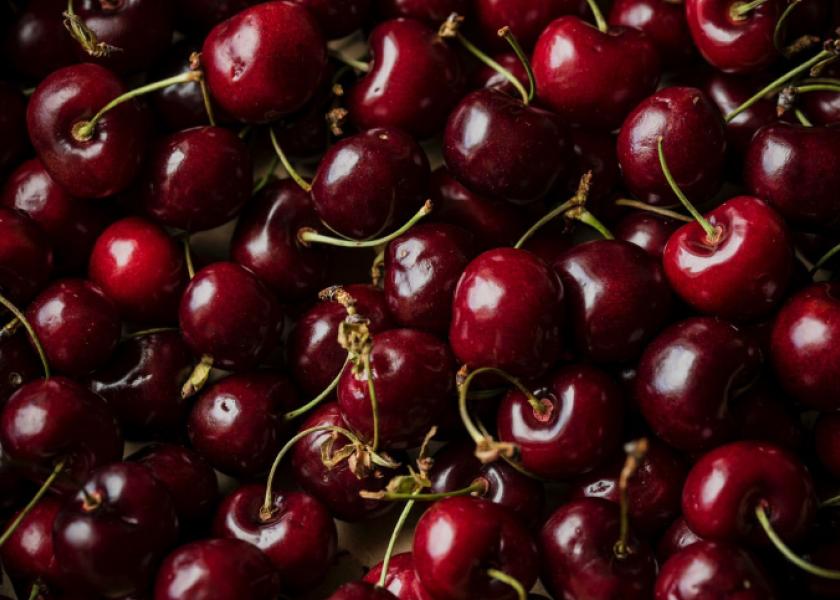COVID-19 complicates Northwest cherry export deal somewhat

The global scope of the ongoing new coronavirus (COVID-19) pandemic is evident in concerns Northwest cherry grower-shippers were expressing in late April, as their summer deal approached.
“Our biggest fear about our offshore markets — we have to put them on planes, and now, only 15% of the air traffic that goes to Asia is going,” said B.J. Thurlby, president of the Northwest Cherry Growers, a Yakima, Wash.-based association that represents around 2,500 growers in the Pacific Northwest.
There’s much at stake, since 35% of the region’s cherries typically goes to export, Thurlby said.
“I think we’re going to be OK in Canada and Mexico, but we’re worried about what’s going on in Asia,” Thurlby said.
There are positive signs emanating from export markets, however, he said.
“We’re hearing that things are getting back to normal faster there than here in the U.S.,” Thurlby said.
“Our Korean partners are seeing the same store traffic as a year ago and the same produce sales as a year ago, and it wasn’t the case a month ago. That’s positive.”
Wenatchee, Wash.-based Northern Fruit Co. Inc. counts heavily on exports, said Bill Knight, domestic sales manager.
“I’d say 50% or more of our crop goes overseas,” he said.
“It’s a little iffy on how we’ll be able to organize that this year. Obviously, COVID has everybody trying to figure what we’re going to do next. The big thing is how do we get it there. We do a lot of air shots, and the air freight is kind of up in the air. We do Taiwan, China, Thailand, Vietnam. We do a little in Japan, although not much.”
Northwest cherries are typically flown to distant markets, so airplane availability is a key to export success this year, he said.
“Before you sound the death knell, we fly freighters — sometimes three a day — that hold only cherries: 120 pallets,” he said.
“We’ll fly them directly into China and Korea. We have daily flights that are just cherries.”
California’s cherry deal likely will provide some lessons, Thurlby said.
“We’ll have an idea of how it’s going to go, just watching California,” he said.
Kelowna, British Columbia-based BC Tree Fruits Cooperative, gets to monitor California and the Northwest, as it figures out the export situation, said Laurel Van Dam, director of sales.
“We are hearing good news in relation to ports being open and the shipping container imbalance getting a bit better,” she said.
“Air freight could be limited, given the reduced flights happening around the world. As is with North American sales, we’ll see if consumer demand is stifled by the pandemic’s effects.”
Exports on cherries could be down in the upcoming season, but the overall impact due to the virus is not yet fully known, said Chuck Sinks, president of sales and marketing with Yakima, Wash.-based Sage Fruit Co.
“Most shippers are predicting that the export market will suffer somewhat, but the capacity of lost shipments will remain to be seen,” he said.
Apple exports also may be instructive, said Tim Evans, general sales manager with Chelan, Wash.-based Chelan Fresh Marketing.
“I think, in the current timing, when it comes to apples, we have seen a slowdown, there’s no question about it,” Evans said. “We’re probably doing maybe 40% of what we’d normally be doing on export side.”
Some cherries are shipped on passenger planes, and the number of flights to export markets is down, Evans said.
“Somewhat, from a passenger airline, impact will be big,” he said. “It’s virtually non-existent now. It’s dealing with people probably more likely to deal with charter jets than passenger, to a certain extent.”
Ships are only a limited option, Evans noted.
Marketers, nevertheless, say they anticipate a successful cherry export season.
“We are expecting to still have a strong export cherry season,” said Danelle Huber, marketing specialist with Wenatchee, Wash.-based CMI Orchards.
“We have some challenges to work through — strong U.S. dollar, COVID-19, trade issues, etc.—- but we continue to receive a lot of inquiries regarding the upcoming cherry crop.”
Somehow, it will work out, said Catherine Gipe-Stewart, communications manager at Yakima, Wash.-based Domex Superfresh Growers.
“There will always be an appetite around the world for Northwest-grown cherries,” she said.
“We don’t have much control over current issues involving health, logistics and the economy, but customers abroad are indicating they are eager to purchase cherries.”
Related content:
Northwest cherries starting now
Cherry suppliers expect good year despite COVID-19 pandemic
Suppliers see organics as key niche in Northwest cherry season







